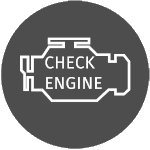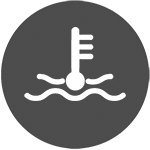What You Need to Know About Hybrid Vehicles: Everything from Typical Wear and Tear to How They Work
Hybrid vehicles are becoming increasingly popular as people become more conscientious about the environment and their gas mileage. But what exactly is a hybrid car, and how does it work? In this blog post, we will discuss everything you need to know about hybrid cars – from typical wear and tear to how they work! We will also cover some of the pros and cons of owning a hybrid vehicle. So whether you’re just curious about hybrid cars or are in the market for one, read on!
A hybrid vehicle uses two or more different power sources to move- the most common being a gasoline engine and an electric motor. The gasoline engine powers the car most of the time, but the electric motor kicks in when additional power is needed, such as when accelerating or climbing hills. The electric motor also helps to recharge the batteries that power the electric motor. As a result, hybrid vehicles get better gas mileage than traditional cars and produce less pollution.
There are a number of factors that can affect the wear and tear of a hybrid car- one of which is terrain. If the car is driven mostly on smooth roads, you can expect less wear and tear than if it were driven on rougher terrain. Another factor that affects hybrid cars is how often the battery is used. If the battery is used frequently, it will need to be replaced more often than if it’s not used as much. And finally, weather conditions can also affect hybrid cars- extreme cold or heat can shorten the lifespan of batteries.
Now that we’ve gone over some of the basics of hybrid cars, let’s discuss some of the pros and cons of owning one. One of the main advantages of hybrid vehicles is that they’re more fuel-efficient than traditional gas-powered cars. They also emit less pollution, which is better for the environment. Hybrid cars also tend to have a longer lifespan than traditional cars- one study showed that hybrid owners can expect their cars to last about 200,000 miles before needing major repairs.
Of course, there are also some disadvantages to hybrid vehicles. One is the initial cost- hybrid cars can be significantly more expensive than traditional gas-powered cars. Another downside is that hybrid batteries can take longer to charge than traditional car batteries. And finally, if you’re not careful, it’s possible to ” overcharge” the battery and shorten its lifespan.
Overall, hybrid vehicles are a great option for those looking for a more fuel-efficient and environmentally friendly vehicle. However, it’s important to weigh the pros and cons of owning a hybrid car before making a decision. Thanks for reading! We hope this blog post has been helpful in informing your hybrid car research.
















